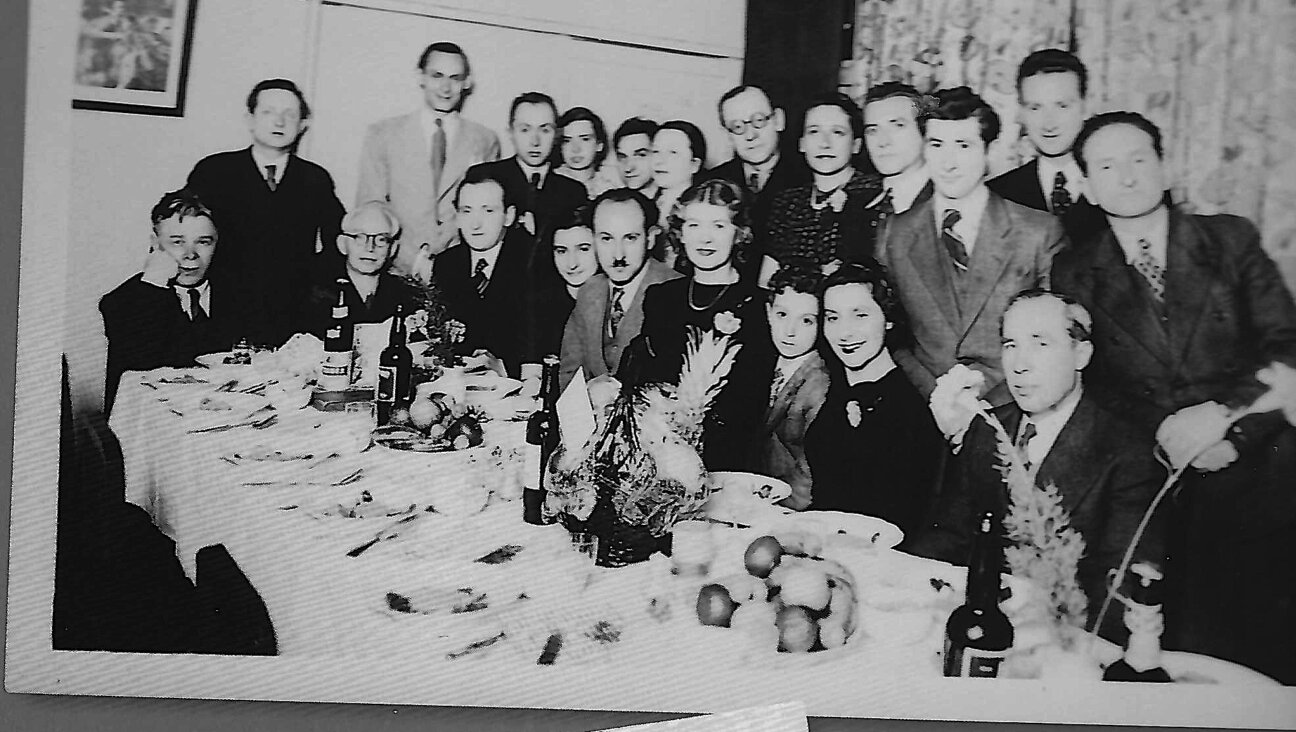Was There a Context for Breivik’s Madness?
His lawyer says he is insane, which is a perfectly plausible diagnosis of Anders Behring Breivik, the slaughterer of 77 Norwegians, most of them children, on July 22. The diagnosis is not only plausible; it is comforting. For if we are dealing here with a madman, then no further inquiry regarding motive need detain us. Insane people do insane things, and outrageous though Breivik’s behavior was, it is par for a madman’s course.
I have spent some hours immersed in reading Breivik’s remarkable 1,500-page manifesto. The level of detail its author puts forward suggests to me some kind of obsessive-compulsive disorder, a mental condition that falls far short of insanity.
The Breivik manifesto, on which its author apparently worked for three years, roams and rummages through a vast waterfront. It includes 32 pages on the decorations (medals, ribbons and such) and uniforms that Breivik proposes for his “Justicia Knights,” the name he gives the army he seeks to build. (That army will take the lead in cleansing Europe of its Muslims.) It includes detailed instruction on the weaponry and armor appropriate to the task he contemplated, exhaustive analysis of the history of Islam, an examination of patriarchy, an extended discussion of the morality of using nuclear weapons to cleanse Norway of its Muslims and more, much more.
It is, I believe, altogether too easy to label as insane people who do such horrid things as Breivik admittedly did. For again and again, we find that they function within a context that is at the least supportive, if not actually suggestive. That is most often the terrorist’s experience.
On February 25, 1994, Baruch Goldstein, an American-born physician, entered a room in the Cave of the Patriarchs that was serving as a mosque. He opened fire, killing 29 worshippers and wounding more than 125. Goldstein was immediately condemned by the government and denounced by the mainstream Orthodox; most in Israel classified him as insane. But the aftermath of the episode offers evidence of Goldstein’s immediate context: At Goldstein’s funeral, Rabbi Yaacov Perrin claimed that even 1 million Arabs are ”not worth a Jewish fingernail.” The gravesite became a pilgrimage site for Jewish extremists; a plaque near the grave reads, “To the holy Baruch Goldstein, who gave his life for the Jewish people, the Torah and the nation of Israel.” In the weeks following the massacre, hundreds of Israelis traveled to Goldstein’s grave to celebrate his actions. Some Hasidim danced and sang there. The phenomenon of the adoration of Goldstein’s tomb persisted for years, despite Israeli government efforts to crack down on those making pilgrimage. In 1999, after the passing of Israeli legislation outlawing monuments to terrorists, the Israeli army dismantled the Goldstein shrine; in the years since, radical Jewish settlers have continued to celebrate the anniversary of the massacre. In 2010, Jewish settlers were criticized for including in their celebrations of Purim a song praising Goldstein’s massacre. That song read, in part: ”Dr. Goldstein, there is none other like you in the world. Dr. Goldstein, we all love you… he aimed at terrorists’ heads, squeezed the trigger hard, and shot bullets, and shot, and shot.”
Breivik cites a number of American sources as part of the network of inspiration on which he relied. The people he cites — Pamela Geller, Daniel Pipes and, most extensively, Robert Spencer — have stoutly denied any responsibility for what he did. So, Spencer, director of Jihad Watch: “Because [Breivik’s manifesto is] nuts, there’s no way that anybody could reasonably say that any of our work has anything to do with it.” And Geller: “This guy was nuts.” In contrast, blogger and Middle East Forum President Pipes acknowledges that what he calls “a freak incident” does, perhaps, have implications for his own work: “I don’t think we have any responsibility. I do think that this is a warning sign that centrist kind (sic) of views like ours could conceivably lead to violence, something I’d never thought before. One has to be careful not to express anything which would lead to violence.”
“Leading to violence” in the current overheated climate does not require a straight line. It requires only a constant drumbeat of exaggerated indictment, an insistence that Islam itself is fundamentally violent, or that all Muslims are suspect unless they can prove their innocence.
As chaotic as is his background, which is clear from yet another substantial part of his manifesto, Breivik cannot fairly be described as “a loner.” He drank deeply from the cesspool of Islamophobia, drawing strength from Geert Wilders in the Netherlands; Marine Le Pen in France; far-right parties in Denmark, Sweden and Britain, and also from the noisy American Islamophobes.
When Rabbi Elazar Abuhatzeira, who was stabbed to death by a man unhappy with the marital advice the rabbi offered, was laid to rest, tens of thousands came to the funeral. There, among others, they heard Minister Meshulam Nahari ask, “Who would have thought that… a rabbi could be murdered in Israel?” To which, I’m afraid, the answer is “Whoever remembers that not long ago a prime minister was murdered in Israel.” And then, too, there was a fertile context.
A plea of insanity lets the perpetrator off the hook and lets society off the hook, as well. It is self-serving, far too facile, hence appropriately suspect. Wherever the contextual chips fall, they warrant careful consideration.

I hope you appreciated this article. Before you go, I’d like to ask you to please support the Forward’s award-winning journalism this Passover.
In this age of misinformation, our work is needed like never before. We report on the news that matters most to American Jews, driven by truth, not ideology.
At a time when newsrooms are closing or cutting back, the Forward has removed its paywall. That means for the first time in our 126-year history, Forward journalism is free to everyone, everywhere. With an ongoing war, rising antisemitism, and a flood of disinformation that may affect the upcoming election, we believe that free and open access to Jewish journalism is imperative.
Readers like you make it all possible. Right now, we’re in the middle of our Passover Pledge Drive and we need 500 people to step up and make a gift to sustain our trustworthy, independent journalism.
Make a gift of any size and become a Forward member today. You’ll support our mission to tell the American Jewish story fully and fairly.
— Rachel Fishman Feddersen, Publisher and CEO
Join our mission to tell the Jewish story fully and fairly.
Our Goal: 500 gifts during our Passover Pledge Drive!























